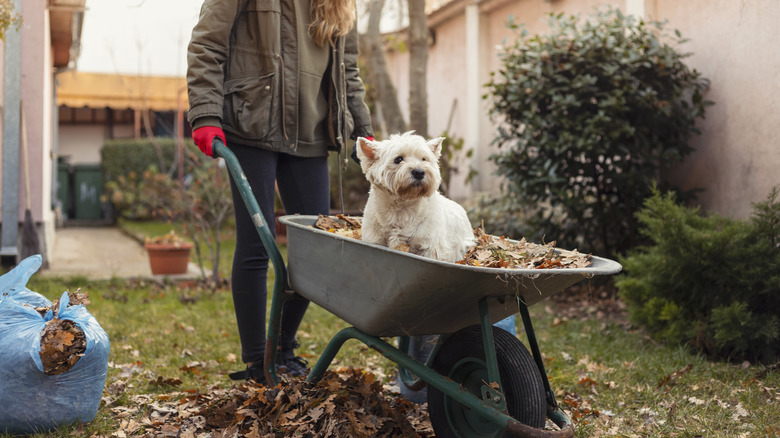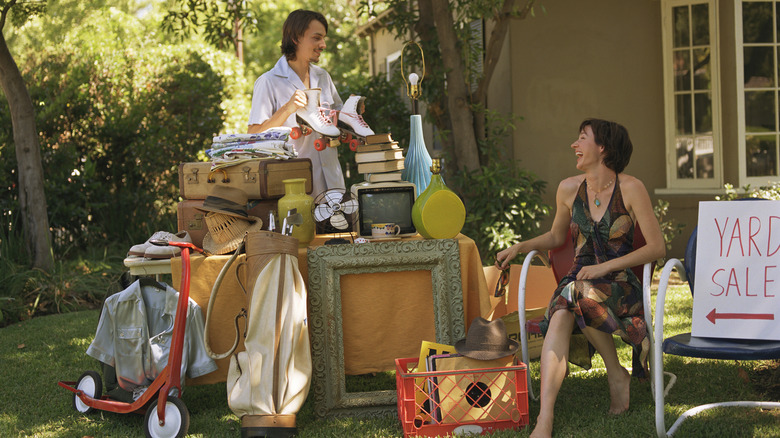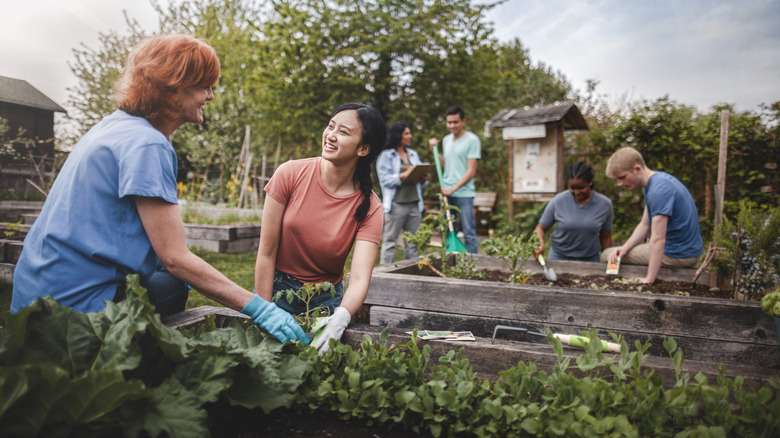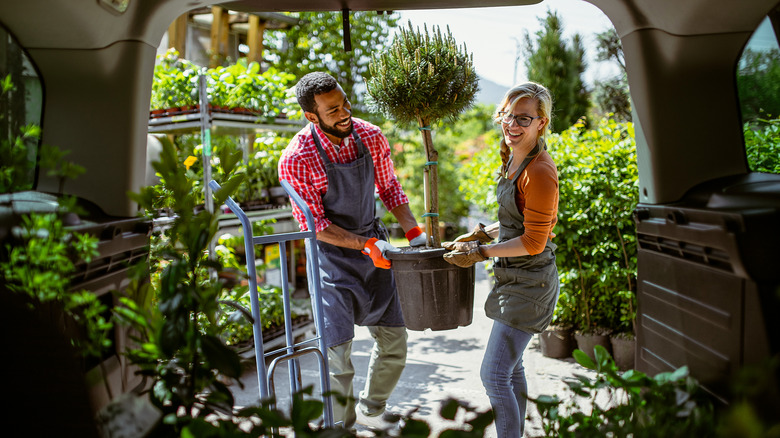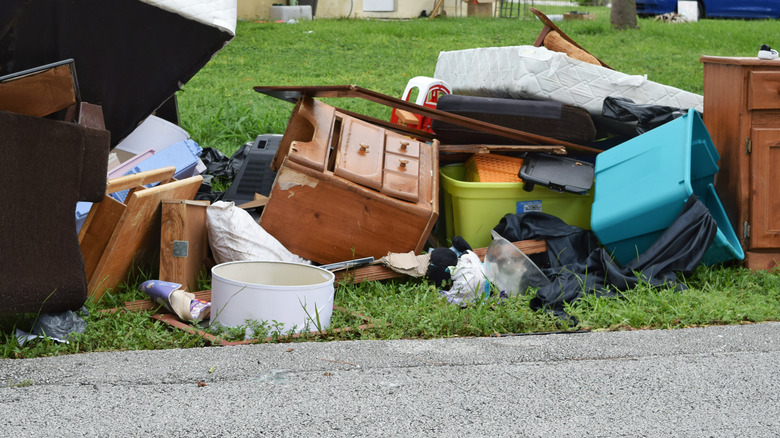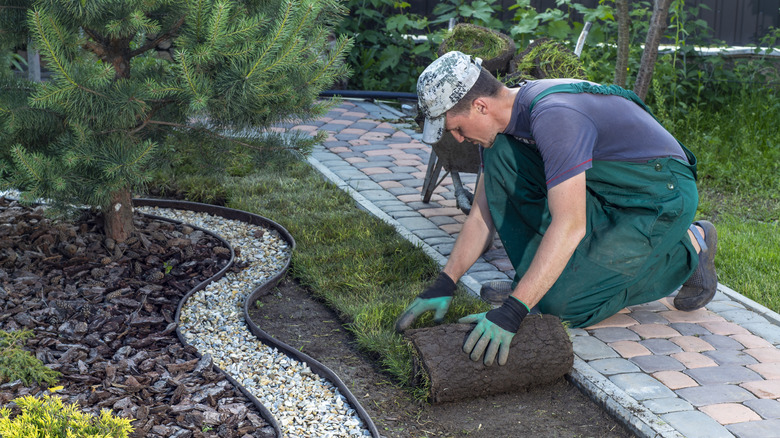Our Professional Gardener's Tips For Rebuilding Your Garden On A Budget After Losing Your Plants
If you've had home repairs done that involved tearing up your garden (like sewer or plumbing repairs, or replacing a gas line), you may have had to say goodbye to some plants and shrubs. It can be a considerable investment to replace an entire garden, but I have some ideas for how to replenish your garden on the cheap. There are many ways to obtain plants inexpensively or even for free.
Having to rebuild or redesign your garden is a great opportunity to create something new that is more functional or beautiful than it was before. If the changes include less shade than you previously had, you'll have to adapt to a sunny garden. Maybe you can add shrubs or a dwarf fruit tree. Consider how you used your yard, and how you might be able to use it going forward if you reimagine the design and layout.
Replacing beloved plants may not be possible once they've been removed, and can be a huge expense. It may be tempting to fill up space with the first plants you can obtain easily or cheaply, but resist doing this. Build up your "new" garden thoughtfully. You don't want to add so many plants that you run out of space if something special comes your way. And trust me, if you're patient and keep looking, something special will come along. Here are my best tips for obtaining new plants without breaking the bank.
Plant swaps
Plant swaps are great ways to obtain plants, and are often the first suggestion from experts for gardening on a budget. Most swaps don't require you to bring plants, but they may charge a low price for you to purchase plants if you don't have any for trade. If you have any plants left, pot them up and bring them. You never know what someone may want. Or bring refreshments — this may inspire others to give you plants. These events are great for meeting local gardeners, or you can host your own plant swap with friends.
Yard sales
Whether it's a yard sale, tag sale, garage sale, or estate sale, you can usually find some useful garden items. I've gotten great terracotta pots and used tools at yard sales. But once in a while, you can also find plants for sale. Or you may notice someone's yard has some overgrown plants in need of division. If the owner is present and seems amenable, you could offer to divide the plants in return for a few divisions, or even offer them a few dollars for some plants.
Community gardens
if you have community garden groups in your area, they're a wonderful resource for many aspects of gardening. Some community gardens rent or lease space for growing vegetables. Some accept seed or plant donations from vendors and share them with the community. If you can get some free flower seeds, especially varieties that reseed themselves, you can establish a flower bed, perhaps in a cottage garden setting. Admit it: you always wanted a cottage garden, and now that you're starting from scratch, you have space! Summer annuals that reseed include cosmos, calendula, bachelor buttons, and California poppies.
Nursery sales
Your local plant nursery will usually mark down plants in late summer. I had a client who bought six 'Nikko Blue' hydrangeas in large pots from the local garden shop for a dollar apiece! It's worth making a cash offer if you want to buy multiple items, especially at the end of the gardening season. If you explain to the owner or manager that you're replacing an entire garden of plants, they may have something free stashed away that they're happy to get rid of or they may give you a deal on perennials.
Trash picking
I admit it, I'm an inveterate trash picker. Recycling rules! I have found some amazing things in the trash, including useful gardening items like terracotta pots, tools, trellises, and stones. I've also found plants. Autumn is a great time to find discarded potted mums that can be planted in your garden. In spring, you might find discarded potted plants such as spring bulbs, small azaleas, or even hydrangeas that can be replanted. I once found three full-grown healthy azalea bushes discarded by the side of the road. Look often, as you never know what you might find.
Local landscaping companies
If you're friendly with any local landscaping or lawn care companies, ask if they have any plants they'd be willing to share. Sometimes they have to dig up or divide plants and if they don't have anywhere to plant them, they may be happy to give them away. Unlike professional gardeners like myself, most landscaping companies and lawn care professionals don't usually maintain a large inventory of perennials, preferring instead to buy new plants as needed. I've gotten some great giveaways from local landscapers, including shrubs and perennials like phlox and peonies.
Social media garden groups
Your local community may have gardening groups on social media, like Facebook or Reddit. These groups are often useful for finding free plants, or people to trade with. There are even online groups that do this via the mail, like the plant trading forums on the Daves Garden website, where members post what they have and what they're seeking. You might also find inexpensive plants for sale online through Facebook Marketplace or eBay. I've bought plenty of plants and seeds on eBay, and 90% of the time the experience has been great.
Volunteer at a local botanical garden
If you have some spare time and energy, botanical gardens often rely on volunteer help to do some of their garden work. In my experience volunteering at a botanical garden, there were often days when the tasks involved dividing perennials, and I was encouraged to take some divisions home. One spring the Spanish bluebells had spread too much in one garden, and the volunteers were encouraged to bring extra bulbs home with them. Botanical gardens also have plant sales and other events and are great for networking with gardeners.
